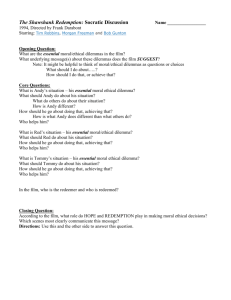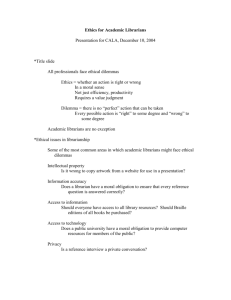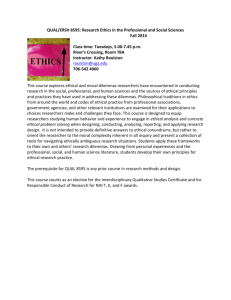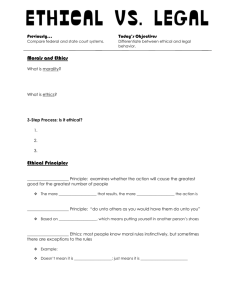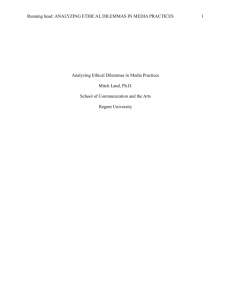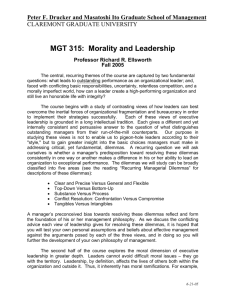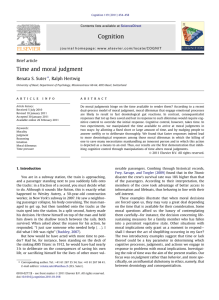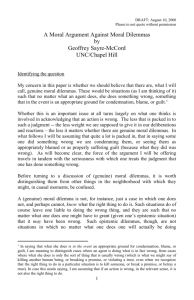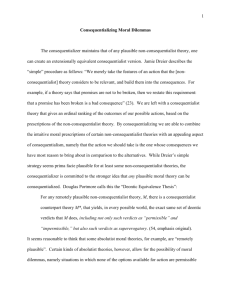World Religion Paradoxes
advertisement
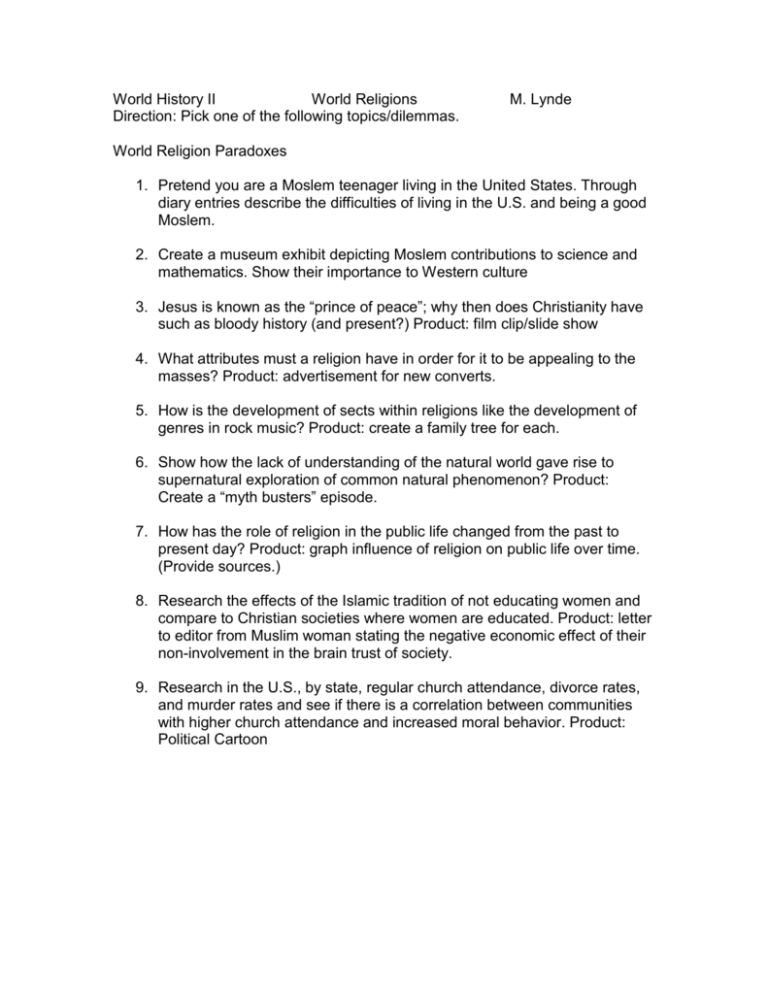
World History II World Religions Direction: Pick one of the following topics/dilemmas. M. Lynde World Religion Paradoxes 1. Pretend you are a Moslem teenager living in the United States. Through diary entries describe the difficulties of living in the U.S. and being a good Moslem. 2. Create a museum exhibit depicting Moslem contributions to science and mathematics. Show their importance to Western culture 3. Jesus is known as the “prince of peace”; why then does Christianity have such as bloody history (and present?) Product: film clip/slide show 4. What attributes must a religion have in order for it to be appealing to the masses? Product: advertisement for new converts. 5. How is the development of sects within religions like the development of genres in rock music? Product: create a family tree for each. 6. Show how the lack of understanding of the natural world gave rise to supernatural exploration of common natural phenomenon? Product: Create a “myth busters” episode. 7. How has the role of religion in the public life changed from the past to present day? Product: graph influence of religion on public life over time. (Provide sources.) 8. Research the effects of the Islamic tradition of not educating women and compare to Christian societies where women are educated. Product: letter to editor from Muslim woman stating the negative economic effect of their non-involvement in the brain trust of society. 9. Research in the U.S., by state, regular church attendance, divorce rates, and murder rates and see if there is a correlation between communities with higher church attendance and increased moral behavior. Product: Political Cartoon Moral Ethical Dilemmas Directions: These answers should be in a diary/journal format with significant details i.e. characters, routines, scenery, etc. Adding drawings or other interesting elements to make this product insightful and interesting. 1. You are a merchant along the silk road. Your 3 brothers and business partners were killed by bandits previously on your journey, all had large families. As the eldest surviving brother, the responsibility falls to you for the wellbeing of your brothers’ families. You are transporting a large cache of weapons to be used by your people in a war against a neighboring country. However, you know that the enemy king will pay 10 times for the weapons what your can sell them for to your king. By selling to your enemy, you will receive enough money to care for your brothers’ families, but you will also know that these weapons will give your enemy an advantage in the war. What do you do? (Essential question: how does the human activity of producing, exchanging, and distribution create a moral/ethical dilemma?) 2. The year is 1517; you live in what is now Central Mexico. At 19, you have lived with the polytheistic beliefs of the Aztecs your entire life, enjoying the temples, rituals, stories, astrology and the cohesive effect on your people. Missionaries from Spain invade your homeland, and assume control of your society. In order to have any chance of advancement, and avoid enslavement, you must reject your traditional beliefs and adopt the new Christian religion of the Spanish. What do you do? (Essential question: how does the human activity of transportation create moral/ethical dilemmas?) 3. You own a business, and have two applicants for an important position. The best qualified applicant is a devout Muslim who must pray five times in a day in a special place. The other applicant is not nearly as qualified, but would not interrupt the work day (could be during meetings, presentations, trials, etc.) Who do you hire? (Essential question: How does the human activity of communication create moral/ethical dilemmas?) 4. Your school authorities have decided that students need more character/moral education. They have decided to use advisory period to teach lessons. The lessons will use and be based on the Ten Commandments. You are Hindu. Do you go along with this, or protest with your local school board? (Essential question: How does the human activity of providing education create moral/ethical dilemmas?) 5. As a Christian you are opposed to stem cell research because it violates the sanctity of life. Your mother is in a car accident that leaves her with a paralyzing spinal injury. You have read a study of stem cell research that offers a cure for her type of injury. Do you encourage her to enroll in the clinical trials? (ESSENTIAL QUESTION: How does the Human Activity of Making and Using Tools and/or Technology create moral/ethical dilemmas?) 6. When the territory of Utah was applying for statehood to receive federal government protection against hostile native tribes and have a voice in that government, the US Congress mandated that the constitution of Utah ban the practice of polygamy, a founding tenant of the Mormon faith and continued and endorsed by Brigham Young. Do you give up this sacred practice as ordained by God or do you give in order to achieve statehood? ESSENTIAL QUESTION: How does the Human Activity of Organizing and Governing create moral/ethical dilemmas? 7. You are a female devout Christian missionary sent to convert a matriarchal tribe in the jungles of Africa. You know the conversion will improve their daily lives through access to western technology, but most importantly, you will save their eternal souls. However, in doing so, you will also render the women subordinate to the men there by decreasing their status within the society. Do you continue spreading the word? (ESSENTIAL QUESTION: How does the Human Activity of Moral, Ethical and Spiritual Behavior create moral/ethical dilemmas? )
